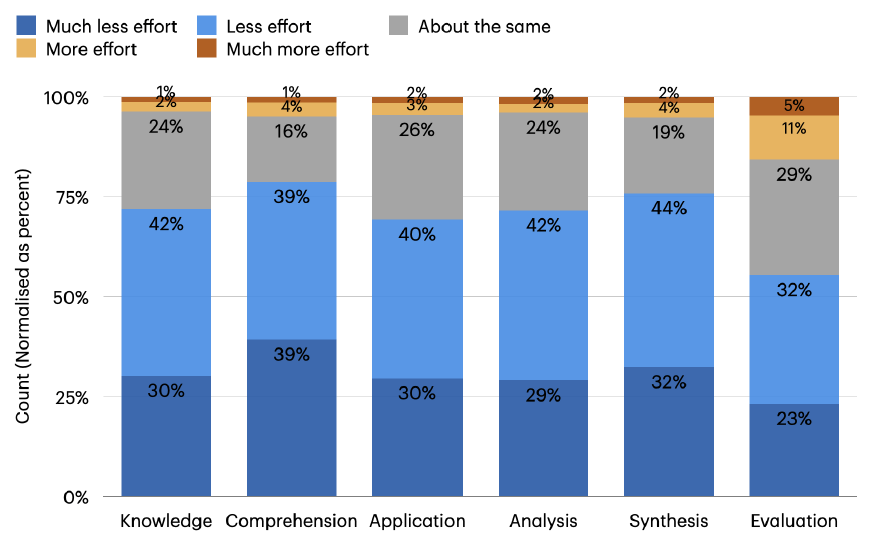GenAI turns knowledge workers from problem solvers to AI output verifiers, says Microsoft study

A new study from Microsoft and Carnegie Mellon University reveals how excessive reliance on AI tools might be eroding people's ability to think critically.
The research team surveyed 319 knowledge workers who shared 936 real-world examples of using generative AI across industries like IT, design, administration, and finance. The study examined six categories of critical thinking: knowledge, understanding, application, analysis, synthesis, and evaluation.
The hidden cost of convenience
The research identified three major changes in how people approach problems when using AI. Instead of gathering information independently, workers now primarily focus on verifying AI outputs. Rather than developing their own solutions, they integrate AI-generated answers. And instead of executing tasks directly, they've shifted toward monitoring AI systems.

For routine or less critical tasks, people may increasingly rely on AI without question, "raising concerns about long-term reliance and diminished independent problem-solving." The research team cites an "irony of automation" - by handling mundane tasks, AI tools actually prevent people from exercising their judgment and "cognitive muscles." This "cognitive offloading" - the outsourcing of thinking to external systems - could gradually weaken people's natural abilities.
The study found that self-confidence might offer some protection. Workers who feel more confident in their own abilities tend to be more skeptical of AI outputs, though the researchers couldn't establish a definitive causal relationship.
According to the researchers, three main factors drive critical thinking: the desire to improve work quality, error avoidance, and personal development. However, several barriers stand in the way, including time constraints, lack of problem awareness, and the difficulty of improving AI responses in unfamiliar domains.
The researchers recommend that companies actively promote critical thinking among employees through specific training on how to review AI results. They also suggest that AI tools should be designed to support, rather than replace, critical questioning.
Young people most vulnerable to AI's effects
A separate study by the Swiss Business School, involving 666 participants, revealed similar findings in January. Young people aged 17-25 showed the highest AI tool usage while scoring lowest on critical thinking tests.
Education level emerged as a significant protective factor in the Swiss study. Those with higher education questioned AI-generated information more frequently and maintained stronger critical thinking skills despite using AI tools.
AI News Without the Hype – Curated by Humans
As a THE DECODER subscriber, you get ad-free reading, our weekly AI newsletter, the exclusive "AI Radar" Frontier Report 6× per year, access to comments, and our complete archive.
Subscribe nowAI news without the hype
Curated by humans.
- Over 20 percent launch discount.
- Read without distractions – no Google ads.
- Access to comments and community discussions.
- Weekly AI newsletter.
- 6 times a year: “AI Radar” – deep dives on key AI topics.
- Up to 25 % off on KI Pro online events.
- Access to our full ten-year archive.
- Get the latest AI news from The Decoder.